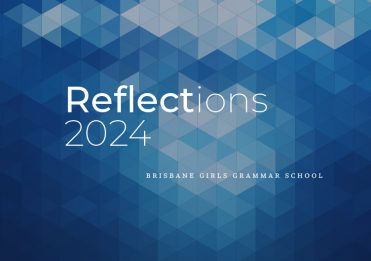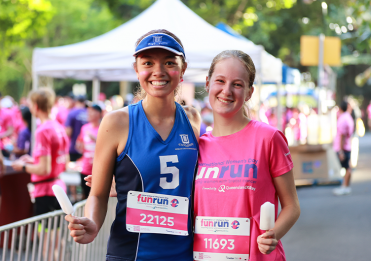Every year at an orientation afternoon tea, I ask incoming Year 7 students to fill in a sheet highlighting their hopes for the year ahead. Almost without exception, they state that they wish to make friends. Let’s face it, having friends is one of the joys of life—they make the highs more enjoyable, the lows more bearable and learning at school easier. Just as some students are gifted in Maths or are talented musicians, some students have a knack for making friends. They draw people to them and can navigate group situations confidently. Conversely, some students struggle to initiate or deepen friendships, feel anxious about facing new social situations, and worry about how to join or leave friendship groups. As we finish up the first few weeks of the School year, I wonder how those girls, now Year 7 students, are faring in this very important part of School life. Here are a few thoughts about the friendship challenges of the School journey, and some advice for parents about how they can support their daughters.
Firstly, our new Year 7 Grammar girls! They may have come to BGGS with many other students from the same primary school, or perhaps she arrived knowing no one. Either way, their House Groups will consist of many completely new faces that will accompany her throughout her six years at BGGS. Having most lessons with this group means that the Year 7s will get to know their House Group quite quickly. But, that does not mean that their first impressions of their classmates will be accurate. Shyer, more introverted students take their time to relax and reveal their true personalities, while some more extroverted types may seek attention to, in fact, cover their insecurities. It is quite rare that the first friend that the girls make will be the one that lasts the distance. It may take them a long time to make friends, and this is completely normal. I encourage parents to support their daughter to be open to her whole class, to smile and engage in conversation, be brave and ask other students if she can sit with them at lunch, join co-curricular activities and attend lunchtime activities such as Pay It Forward, Libellum and PAL (Play at Lunch). Our school psychologists also offer help in a group or individual setting to students who struggle to make friends. PARENT TIP: the one thing parents can do is to normalise the struggle, and try to avoid interrogating their daughter every day about who she sat with at lunch (as tempting as it may be!).
Now some advice for older students and their parents. Each year brings new opportunities to make new friends, even for Year 12 students. Groups are not set in concrete, and navigating changing friendships means practising important life skills not just specific to school. It’s a blessing if a student is not in a core class with her best friend, or once again must meet completely new classmates. Having a wide group of friends means that if there are tensions with a particular friend, they have other lunchtime or social options. Keeping up with friends from primary school or other family friends is also a great idea to provide connections away from School. The biggest support that parents can provide is to reassure their daughters that they believe they have the confidence and the attributes to make new friends and navigate issues. Sometimes when parents have had problems making friends or have suffered from social anxiety, it is tricky to keep their daughter’s difficulties in perspective. Providing an empathetic ear without feeding anxieties is the key to managing their daughter’s distress. It is a difficult task—we all want to ‘fix’ what we perceive to be an issue—but very important.
As we look to the rest of 2024, know that in the life of a teenage girl, there will be ups and downs, moments of loneliness, drama, and anger. There will also be plenty of laughter, exciting new friendships to discover and comfortable old friendships to provide support in the classrooms and grounds at BGGS. Managing all these experiences is all part of students’ education, and it is just as important as any academic subject.
Mrs Sybil Edwards
English Teacher and Head of Lilley House




